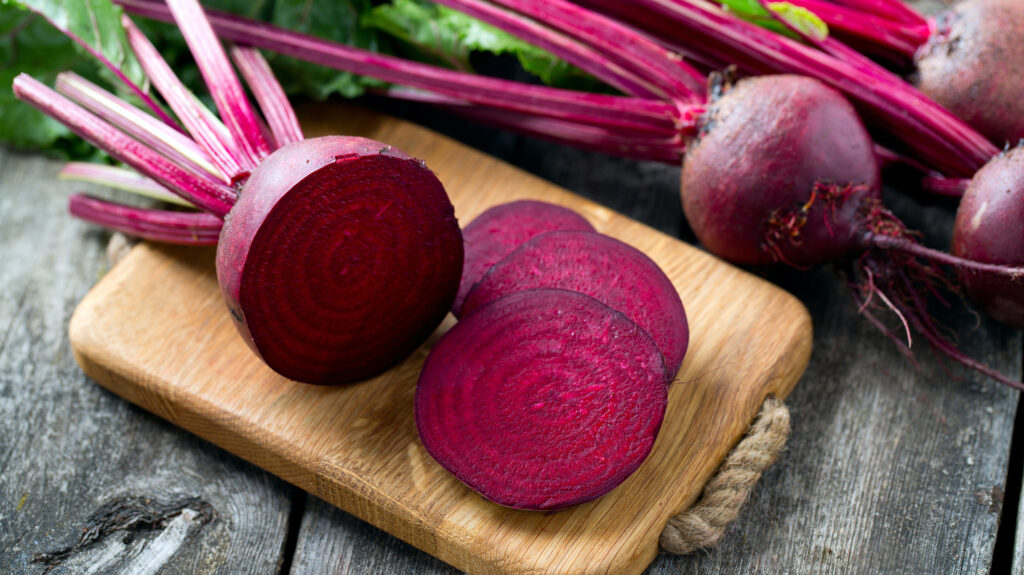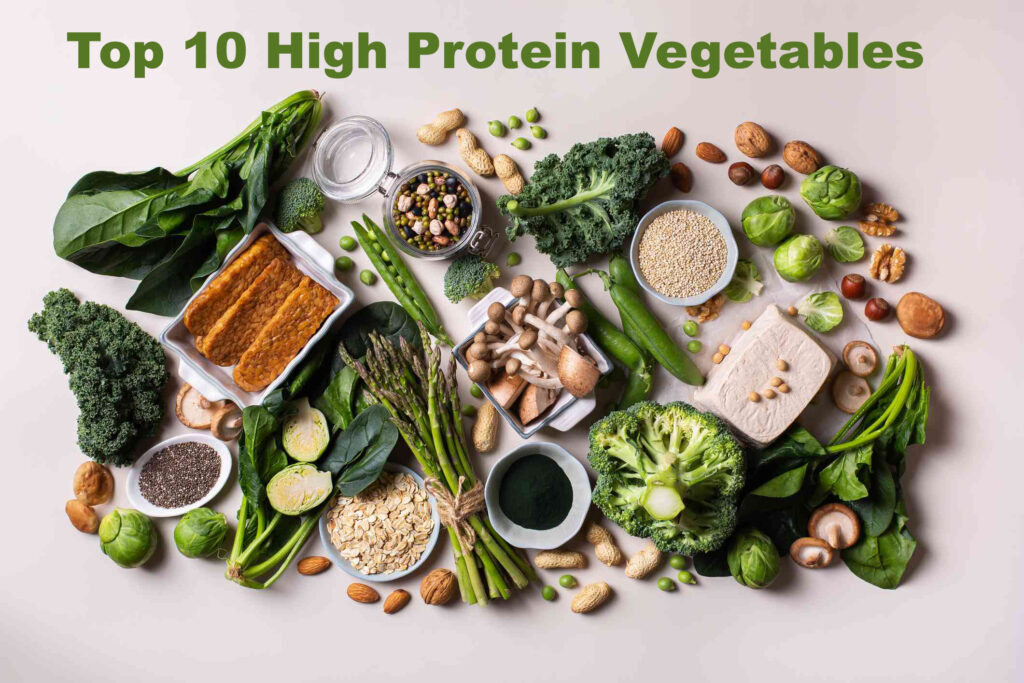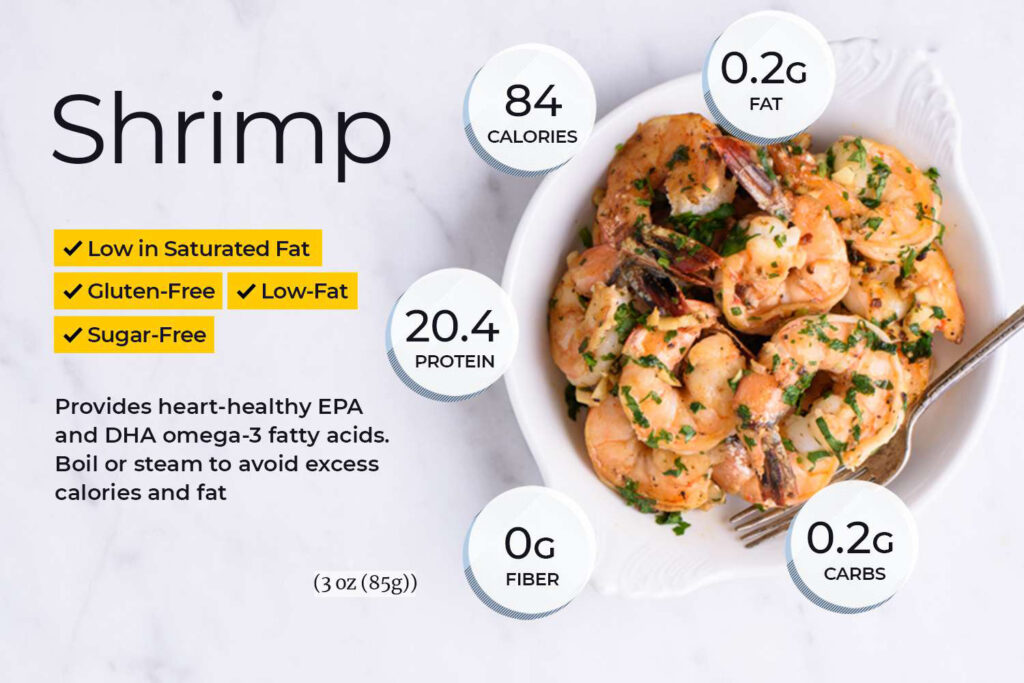Beetroot (Beta vulgaris), commonly known as beet, is a nutrient-packed root vegetable renowned for its vivid red color and earthy taste. It has been consumed for centuries, not only for its flavor but also for its medicinal properties. Beetroot is highly versatile, used in salads, juices, soups, and as a natural food coloring agent. It is also lauded for its health benefits, particularly in improving cardiovascular health, athletic performance, and detoxification.
Nutritional Facts (per 100 grams of raw beetroot):
- Calories: 43 kcal
- Carbohydrates: 9.6 g
- Sugars: 6.8 g
- Fiber: 2.8 g
- Protein: 1.6 g
- Fat: 0.2 g
- Vitamin C: 4.9 mg (8% of daily requirement)
- Folate (Vitamin B9): 109 µg (27% of daily requirement)
- Potassium: 325 mg (9% of daily requirement)
- Iron: 0.8 mg
- Magnesium: 23 mg
- Phosphorus: 40 mg
- Calcium: 16 mg
- Sodium: 78 mg
- Water content: 87%
Beetroot is low in calories but rich in fiber, vitamins, and essential minerals like folate, manganese, and potassium. Its vibrant red color comes from natural pigments called betalains, which also contribute to its health benefits.
Health Benefits of Beetroot
1. Supports Cardiovascular Health
Beetroot is known for its high nitrate content, which is converted into nitric oxide in the body. Nitric oxide helps relax and dilate blood vessels, improving blood flow and reducing blood pressure. Several studies have shown that beetroot juice can lower systolic blood pressure, making it beneficial for individuals with hypertension.
Key nutrients: Nitrates, potassium, folate
Benefit: Reduces risk of heart disease, stroke, and high blood pressure.
2. Enhances Athletic Performance
Beetroot has become a popular supplement among athletes due to its ability to improve endurance and exercise performance. The nitrates in beetroot enhance oxygen utilization, leading to increased stamina and reduced fatigue. Drinking beetroot juice before a workout has been shown to improve time to exhaustion and overall exercise efficiency.
Key nutrients: Nitrates
Benefit: Boosts stamina, improves muscle oxygenation, and enhances physical endurance.
3. Rich in Antioxidants
Beetroot is a powerhouse of antioxidants, particularly betalains and Vitamin C. These antioxidants protect the body’s cells from oxidative stress, which can contribute to aging and chronic diseases like cancer. Betalains, in particular, have anti-inflammatory and detoxifying properties, making beetroot a valuable food for reducing oxidative damage in the body.
Key nutrients: Betalains, Vitamin C
Benefit: Reduces oxidative stress, supports liver detoxification, and lowers the risk of cancer.
4. Improves Digestive Health
Beetroot is an excellent source of dietary fiber, which is crucial for maintaining a healthy digestive system. Fiber adds bulk to stools, helps prevent constipation, and supports a healthy gut microbiome. Regular consumption of fiber-rich foods like beetroot can reduce the risk of digestive disorders, including diverticulitis and colon cancer.
Key nutrients: Fiber
Benefit: Promotes regular bowel movements and enhances overall gut health.
5. Supports Brain Function
Beetroot’s nitrates not only benefit cardiovascular health but also enhance brain function by improving blood flow to the brain. This can be particularly beneficial for older adults, as increased cerebral blood flow is associated with better cognitive function and a reduced risk of dementia.
Key nutrients: Nitrates, potassium
Benefit: Enhances cognitive function and may protect against age-related decline.
6. Anti-Inflammatory Properties
Chronic inflammation is linked to various diseases, including heart disease, cancer, and autoimmune conditions. Beetroot’s betalains have been shown to have anti-inflammatory effects, which can help reduce inflammation in the body. Regular consumption of beetroot may benefit those suffering from inflammatory conditions like arthritis.
Key nutrients: Betalains, Vitamin C
Benefit: Reduces inflammation, alleviates symptoms of arthritis.
7. Detoxification Support
Beetroot is known for its detoxifying properties, particularly due to the presence of betalains. These compounds support the body’s detoxification processes, particularly in the liver, by aiding in the elimination of toxins and waste products.
Key nutrients: Betalains, antioxidants
Benefit: Promotes liver health and aids in detoxification.
8. Supports Healthy Pregnancy
Folate, or Vitamin B9, is essential during pregnancy to support fetal development and prevent neural tube defects. Beetroot is rich in folate, making it a great food for pregnant women. Including beetroot in the diet can help meet the increased folate needs during pregnancy.
Key nutrients: Folate
Benefit: Supports healthy fetal development and prevents birth defects.
9. Helps in Weight Management
With its low calorie and high fiber content, beetroot can be a valuable addition to a weight-loss diet. The fiber helps you feel fuller for longer, reducing overall calorie intake. Its high water content also helps keep you hydrated while providing essential nutrients.
Key nutrients: Fiber, water
Benefit: Promotes satiety and supports weight management.
10. Boosts Skin Health
The antioxidants in beetroot, especially Vitamin C, play a role in promoting healthy skin. Vitamin C helps in collagen synthesis, which is essential for skin elasticity and firmness. Regular consumption of beetroot can help improve skin tone, reduce signs of aging, and promote a healthy complexion.
Key nutrients: Vitamin C, antioxidants
Benefit: Enhances skin health and reduces signs of aging.
Culinary Uses of Beetroot
Beetroot is versatile and can be used in various culinary ways:
- Raw: Grated into salads or smoothies for a fresh and crunchy addition.
- Juice: Consumed as a health-boosting juice, often combined with other vegetables like carrots and celery.
- Roasted: Roasting beetroot brings out its natural sweetness and is often used in salads or as a side dish.
- Soups: Commonly used in the classic Eastern European dish, borscht.
- Pickled: Often pickled for a tangy and flavorful snack or side.
- Baked Goods: Beetroot puree is sometimes used in cakes and muffins for added moisture and a natural red color.
Conclusion
Beetroot is a nutrient-dense vegetable that offers a wide range of health benefits, from improving cardiovascular and cognitive health to enhancing athletic performance and promoting detoxification. Its rich content of vitamins, minerals, antioxidants, and dietary fiber makes it an excellent addition to a balanced diet. Whether consumed raw, roasted, juiced, or pickled, beetroot is a versatile and health-boosting food worth incorporating into your meals regularly.





